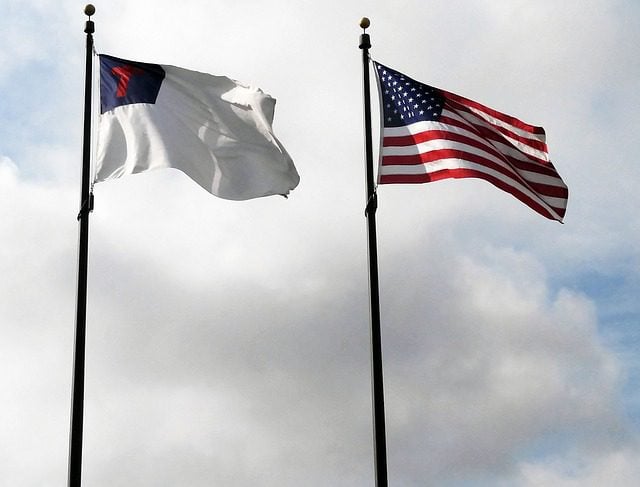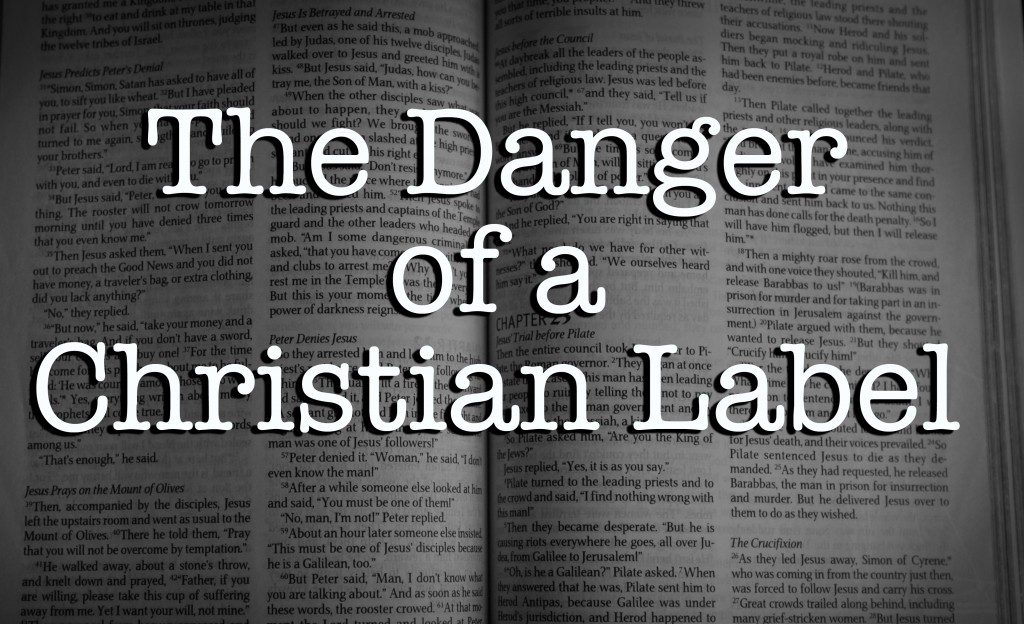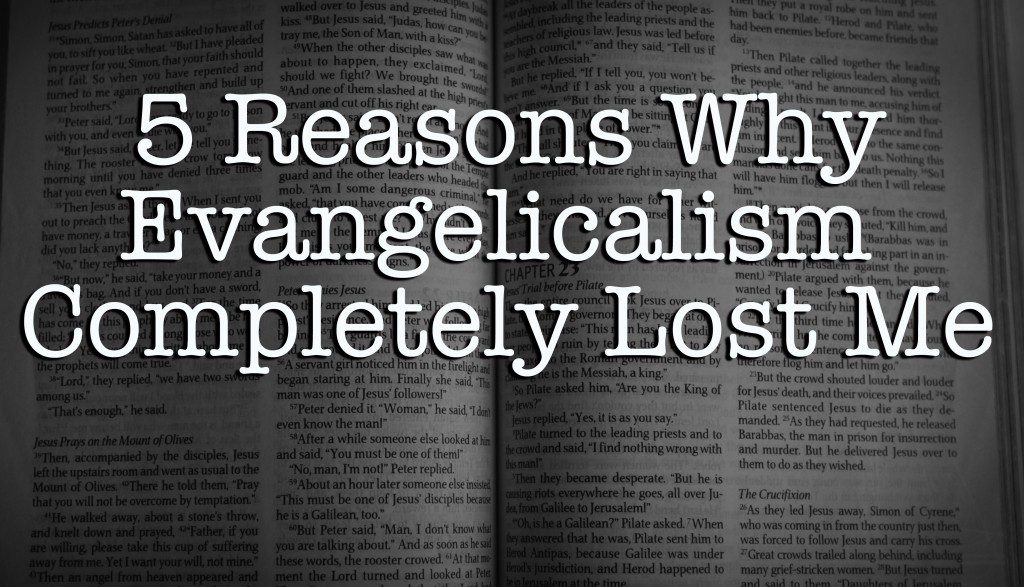I’m sure you’ve probably seen a Charisma News article flow through your Facebook or Twitter feed. Perhaps you’ve clicked the link a few times, or even worse, maybe you’ve occasionally strolled into the comment section. If you have, you probably already know what I’m about to tell you, but I think it bears repeating out loud: reading Charisma News articles is toxic to our faith and probably should be avoided. Here’s 5 reasons why I think this is the case:
1. Charisma News Breeds a Gospel of Fear.
The moment Jesus arrives on the scene of human history we see the angels make one of the most important declarations in all of scripture: “Be not afraid!” In fact, we see some variation of this phrase a few dozen times in scripture depending on the translation. However, the Gospel message of “be not afraid” is not what you’ll find at Charisma- instead, you’ll find an entire platform that is based on fear.
Where scripture tells us “be not afraid,” the message of Charisma News is:
“Holy crap folks! The gays and Muslims are coming- this is a sure sign of the end times! Yikes… what if some of those Muslims are gay on top of being Muslim? We’re doomed if we don’t do something fast. If the Liberal Evangelicals take over, we’re going to have a country flooded with gay Muslims who will not only force you to bake wedding cakes for gay marriages, they’re going to start MAKING you attend the wedding itself. Oh, and about Millennials- what if they decide to elect an Evangelical Pope? And what if they vote in Rachel Held Evans and she makes an ex cathedra declaration that only women can be pastors from now on???? It’s time to do battle!!”
See? Sounds ridiculous but that’s not all that satyrical. Charisma News preaches a Gospel of fear, and that’s not the Gospel at all.
2. Charisma News Promotes Anti-Christ Values.
In my experience, it seems that the central question Charisma News is trying to answer is: who is our enemy and how do we defeat them? Whether it’s Muslims, gay people, Palestinians, or Liberal Evangelicals, Charisma is enemy focused. Strangely, Christ taught us to love our enemies, but that’s not the direction or position of Charisma News- which makes these teachings “anti-Christ” by definition. Just try commenting “love your enemies” on one of their articles about Islam and see how quickly you are devoured- it’s happened to me one too many times until I learned my lesson.
Because of this enemy focus that is more concerned with enemy defeat instead of enemy love, their platform has spiraled into a cesspool of anti-Christ negativity that does not produce beautiful results but instead fuels fighting among people who should be busy loving (something Prov 6:16-19 calls an abomination).
Remember: “Have nothing to do with foolish, ignorant controversies; you know that they breed quarrels. And the Lord’s servant must not be quarrelsome but kind to everyone, able to teach, patiently enduring evil, correcting his opponents with gentleness.” 2 Tim 2:23
3. Charisma News Slanders People.
The inaccuracies one can find in Charisma articles are astounding, but they cross the line into slander when they do it not out of ignorance but out of a desire do discredit opponents. A sad example was an article the other day written by Chelsen Vicari (the same person who wrote a book about how Rachel Held Evans, Sarah Bessey, Shane Claiborne and myself are going to destroy the world or something- and who was caught distorting the truth previously). The article seemed to hint that Rachel was somehow pro-abortion, which is untrue. This article simply followed a pattern of twisting facts in order to smear people, which is slander pure and simple. The irony? The same passage many of them quote about homosexuality actually includes slanderers as people who won’t enter God’s Kingdom.
4. Charisma News Does Not Help One Attain The Fruits of the Spirit.
The Bible tells us that the evidence we’re on the right path will be that our lives exemplify “love, joy, peace, patience, kindness, goodness, faithfulness, gentleness and self-control.” Unfortunately, that doesn’t seem to be what Charisma is selling, nor is it what I (and I assume many of you) experience when reading a Charisma article. It certainly isn’t what I experience when interacting with readers at Charisma. The ultimate evidence of the toxicity of Charisma News is the fruit it produces- it’s not fruit of God’s spirit.
5. Charisma News Might Cause You To Doubt Jesus and the Future of the Church.
Jesus told Peter that not even the gates of hell would prevail against the mission of the Church he established. Yet, if you stroll into the comment section on just about any article, you’ll severely doubt that. I honestly don’t know how to describe the comment section at Charisma as anything other than “the most depressing place I have ever visited.” I just don’t see God there- I don’t see his beauty, I don’t see love, I don’t see his goodness manifesting itself among a community of believers, and I certainly don’t see Jesus. Spending too much time in there, or even any time at all, could cause one to severely doubt the future of the church and the promise Jesus made to Peter.
…
There’s a time to be provocative, and there’s a time to forcefully address issues in the church head on (as I’m doing now). But there’s also a thing we call balance- and when that is off, everything is off. The balance at Charisma News is one that I find so over the top in the wrong direction, that I truly believe spending too much time there would result in one walking away as either a fearful, angry, or bitter person- I just don’t see one walking away full of the love of Christ and a love for others. So please, guard your faith- consider permanently fasting from Charisma News articles.









 Dr. Benjamin L. Corey is a public theologian and cultural anthropologist who is a two-time graduate of Gordon-Conwell Theological Seminary and received his doctorate in Intercultural Studies from Fuller Theological Seminary. He is also the author of the new book, Unafraid: Moving Beyond Fear-Based Faith, which is available wherever good books are sold.
Dr. Benjamin L. Corey is a public theologian and cultural anthropologist who is a two-time graduate of Gordon-Conwell Theological Seminary and received his doctorate in Intercultural Studies from Fuller Theological Seminary. He is also the author of the new book, Unafraid: Moving Beyond Fear-Based Faith, which is available wherever good books are sold. 













